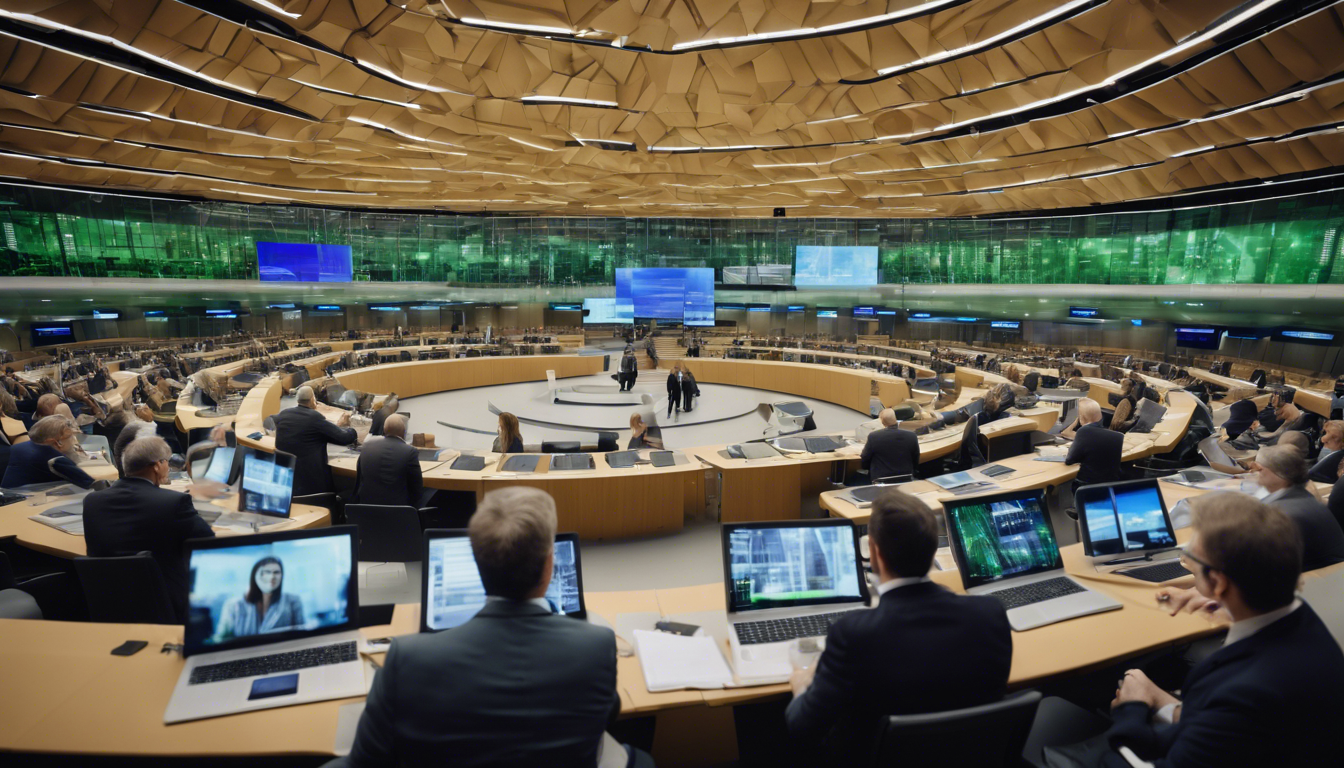Following the recent parliamentary elections in the European Union, a new commission has been appointed, tasked with spearheading complex issues related to economic and social development. With a diverse range of goals, the commission aims to navigate through the nuances of modern challenges while pushing forward coherent and sustainable growth across member states.
Under the overarching theme of ‘A Stronger Economy with a Human Touch’, the commission sets forth a dual focus on economic resilience and social equity. The proposals are ambitious: from digital transformation and environmental sustainability to social cohesion and employment opportunities. Each element is designed to weave into the broader narrative of a progressive, inclusive European Union.
Historically, the EU has played a pivotal role on the global stage in terms of economic innovation and social policies. From the establishment of the Eurozone to pioneering climate action frameworks, its history is rich with initiatives that combine economic growth with social welfare. The new commission is tasked not only with continuing this tradition but also with adapting to the rapidly evolving global landscape.
One of the key economic objectives of the commission is to enhance the digital infrastructure across the EU. The COVID-19 pandemic highlighted the critical need for robust digital capabilities, and the commission plans to move aggressively in making Europe a leading digital economy. This includes significant investments in broadband networks, cybersecurity measures, and digital education. Such enhancements are perceived as essential for boosting competitiveness and ensuring equitable access to technology across all member states.
Beyond digital transformation, the commission is deeply invested in the Green Deal—an ambitious plan to make Europe climate-neutral by 2050. This initiative not only addresses environmental concerns but also aims to create new jobs and foster economic growth through green technologies. The transition to a green economy is fraught with challenges, including substantial financial investment and the need for innovative technological solutions. However, it also presents opportunities to lead globally in the emerging market of sustainable technologies.
Socially, the commission is equally ambitious. Ensuring the social rights of all EU citizens remains paramount, with significant focus on education, health care, and workers’ rights. The ‘Pillar of Social Rights’, first introduced in Gothenburg in 2017, continues to be a cornerstone of policy, emphasizing fair working conditions, social protection, and inclusion. Indeed, these principles are expected to guide the development of legislation under the new commission.
The demographic challenges of an aging population are also on the commission’s radar. Policies geared toward supporting an aging workforce, along with measures to encourage higher birth rates and manage migration effectively, are crucial. These demographic shifts pose both economic and social challenges, from pension sustainability to health care services, demanding comprehensive and forward-thinking responses.
Critics argue that while the objectives are noble, the practical execution faces inherent challenges. Economic disparities between EU member states complicate uniform policy application. Additionally, the rise of nationalism and Euroscepticism poses significant political and social hurdles. Balancing regional and national interests within EU frameworks remains a delicate task.
To address these multifaceted challenges, the commission promotes a model of ‘inclusive growth’. This concept not only focuses on economic growth but also ensures that the benefits are widely shared across society. Economist Jean Pierson suggests that ‘The true measure of success for the new commission will be its ability to reduce disparities, not just in economic terms but also social inclusivity.’
As Europe strides into a new era under the guidance of the newly appointed commission, the journey will be marked by efforts to harmonize aspirations with practical realities. The success of these objectives hinges on the collective resolve of member states to embrace change and collaboratively address the looming economic and social challenges. With a vision for a resilient and inclusive Europe, the new commission’s path reflects both the historical ethos of the EU and the inevitable evolution required to thrive in the twenty-first century.
You may also like
Fiscal maneuver 2025 : Impacts on Household Savings
The 2025 budget plan proposed by the Italian government is poised to bring significant changes with potential impacts on the savings of Italian families. This article explores the details of the fiscal maneuvers, the expected economic shifts, and the perspectives from experts and policymakers.
The Rise of Real Estate Sales in Small Italian Towns
In recent years, there has been a significant increase in real estate transactions within Italy’s smaller towns. This trend is fueled by a growing interest in the unique lifestyle these locations offer, coupled with a surge in remote working opportunities. The article delves into the factors contributing to this phenomenon and identifies some of the most desirable areas for potential buyers.
The New House Bonus Rules: Tax Deductions and Eligibility
The new house bonus rules introduce significant changes to tax deductions for home renovations and energy efficiency improvements. This article delves into the specifics of these regulations, eligibility criteria, and benefits, offering a thorough analysis for homeowners.
How 100% Mortgages work for Young People ?
The 100% mortgage scheme aimed at young individuals has become a significant avenue for aspiring homeowners. This guide explores how these mortgages function, the necessary guarantees, and the eligibility criteria for individuals seeking such financial assistance.
